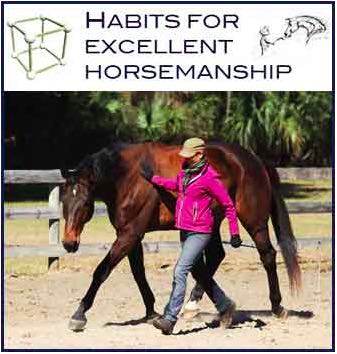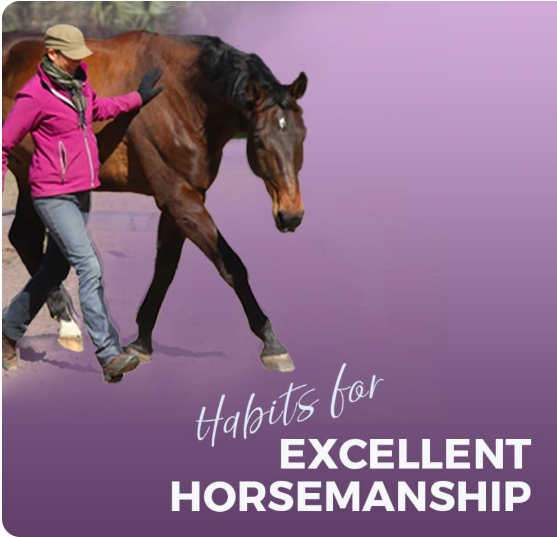Prefer to listen? Check out Karen's podcast episode on all 9 Habits For Excellent Horsemanship.
Part 3: Feel, Consistency/Variety, and Sense Of Humor
It takes years to develop the skills and abilities of an experienced master horseman. The good new is there are specific habits that you can implement starting right now, no matter what level you are. As soon as you use these habits you become a practicing horseman, not just someone practicing to someday become a horseman. These habits are true no matter what discipline or program you use. Your horse will immediately feel the difference.
These habits are what I call The 9 Habits For Excellent Horsemanship. Let’s look at three of them.
(You may also be interested in Part 1 and Part 2 of this series)
Check out Karen Rohlf's popular online horsemanship course. It's self-paced and includes live ongoing support
Feel:
Feel for your horse. He will tell you everything you need to know.
There are so many choices we can make when we are with our horses. Our ability to feel what our horse needs helps us make the best choice. Having feel means you are able to interpret the sensations your horse gives you, and are aware of the sensations you are giving to your horse.
Openness to change goes along with having a feel. Having feel is useless f you are unwilling to change your mind based on what you feel. In order to feel you must be balanced, centered, calm and open. Over-thinking blocks feeling.
In every moment with your horse, can you trust what you feel and be willing to adjust?
Consistency & Variety:
Be consistent without being boring. Offer variety without being random.
Consistency used well creates confidence. Consistency over-used can lead to assumption and boredom. Variety used well creates mental and physical engagement. Variety over-used can lead to confusion and anxiety.
Excellent horsemen are aware of their patterns and know when to slow down and be more methodical, and when to change it up and be more provocative.
In every moment with your horse, can you be aware of how you are using consistency and variety in a way that benefits your horse?
Sense of Humor:
Horsemanship & Life are lessons in lightness. You can get serious results without having to be so serious.
If it stops being fun for you, it probably already stopped being fun for your horse a long time ago. To have a sense of humor means that you don’t take what your horse does personally. You are able to see every situation for what it is, and not worse than what it is.
Having a sense of humor doesn’t mean you over-look important things; it means you are forgiving and non-judgmental of yourself and your horse. When I lose my sense of humor it is often because I am being way too hard on myself or my horse. Be unafraid to experiment and forgive ‘mistakes’. Curiosity is the antidote to frustration.
In every moment with your horse can you stay light-hearted, curious, and playful?
Thoughts? Scroll down to leave a comment!






